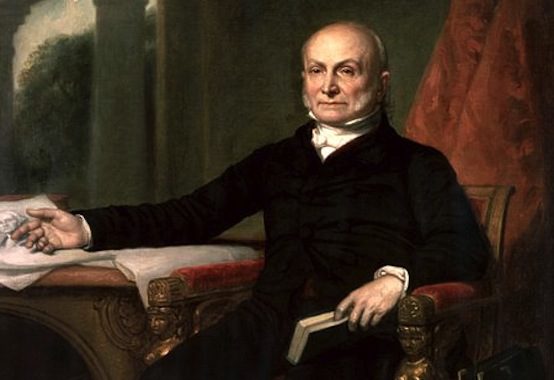Go Not Abroad In Search of Monsters to Arm
In a few years, it will be the two-hundredth anniversary of John Quincy Adams’ Independence Day speech in which he defined the role of the United States in the world:
Wherever the standard of freedom and independence has been or shall be unfurled, there will her heart, her benedictions and her prayers be. But she goes not abroad in search of monsters to destroy. She is the well-wisher to the freedom and independence of all. She is the champion and vindicator only of her own. She will recommend the general cause, by the countenance of her voice, and the benignant sympathy of her example.She well knows that by once enlisting under other banners than her own, were they even the banners of foreign independence, she would involve herself, beyond the power of extrication, in all the wars of interest and intrigue, of individual avarice, envy, and ambition, which assume the colors and usurp the standard of freedom. The fundamental maxims of her policy would insensibly change from liberty to force. The frontlet upon her brows would no longer beam with the ineffable splendor of freedom and independence; but in its stead would soon be substituted an imperial diadem, flashing in false and tarnished lustre the murky radiance of dominion and power. She might become the dictatress of the world: she would be no longer the ruler of her own spirit.
This section is well-known to many of us, and it remains one of the wisest statements on the conduct of U.S. foreign policy in our country’s history. The practice of U.S. foreign policy long ago departed from this wisdom, and on the whole the U.S. and the world have been worse off as a result. The maxims of our policy have certainly changed to force, so much so that almost every debate that we have about a foreign crisis or conflict includes the possibility of military intervention. Unfortunately, our interventionist policies frequently create just as many monsters as they destroy, and in some cases those policies involve joining forces with some of the most monstrous regimes in the world for bad reasons.
Adams’ speech focused on the damage that would be done to the American character and to our country if we ensnared ourselves in foreign conflicts, but today we know very well how much harm our government can do to other nations when it becomes involved “in all the wars of interest and intrigue.” The danger in our foreign policy now is not just that the U.S. will embark on reckless crusades, but even worse than that there is the danger of throwing our lot in with despicable and cruel regimes in conflicts that have nothing to do with our security or freedom. We still shouldn’t go searching for monsters to destroy, but a more immediate concern should be that we stop arming and supporting monsters as they wreak havoc on their neighbors and their own people.
When a client regime abuses and kills its own people or engages in aggression against a neighbor, there are always defenders of the relationship that are quick to warn against taking any punitive action for fear of “losing” the bad client to some other patron. This overlooks that the clients need U.S. support much more than the U.S. needs these clients, but that isn’t the most important point. These states are not our allies. The U.S. is not obliged to help them with their defense, and we certainly aren’t required to enable their aggression against other countries. Why we should be afraid to lose clients when they have become liabilities and do nothing except cause us headaches and involve us in unnecessary conflicts? Why should the U.S. be arming monstrous regimes when doing so contributes virtually nothing to making the U.S. more secure? We should go not abroad in search of monsters to arm, and we should stop letting those same monsters dictate what our regional policies should be.
https://www.theamericanconservative.com/larison/go-not-abroad-in-search-of-monsters-to-arm/



0 Comments:
Post a Comment
Subscribe to Post Comments [Atom]
<< Home